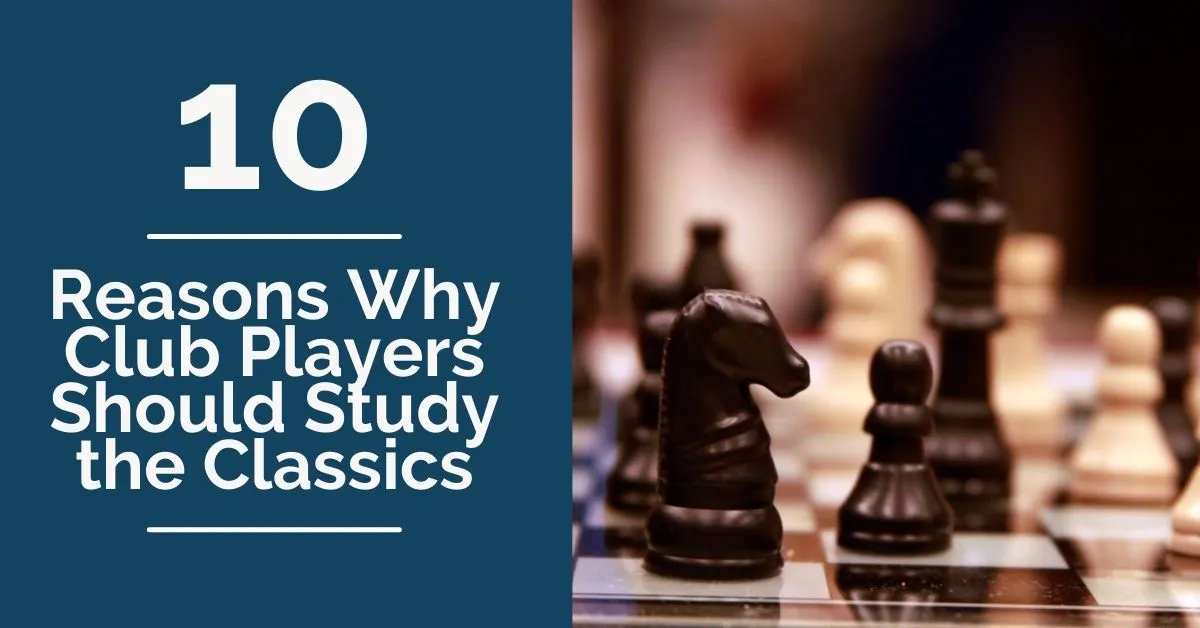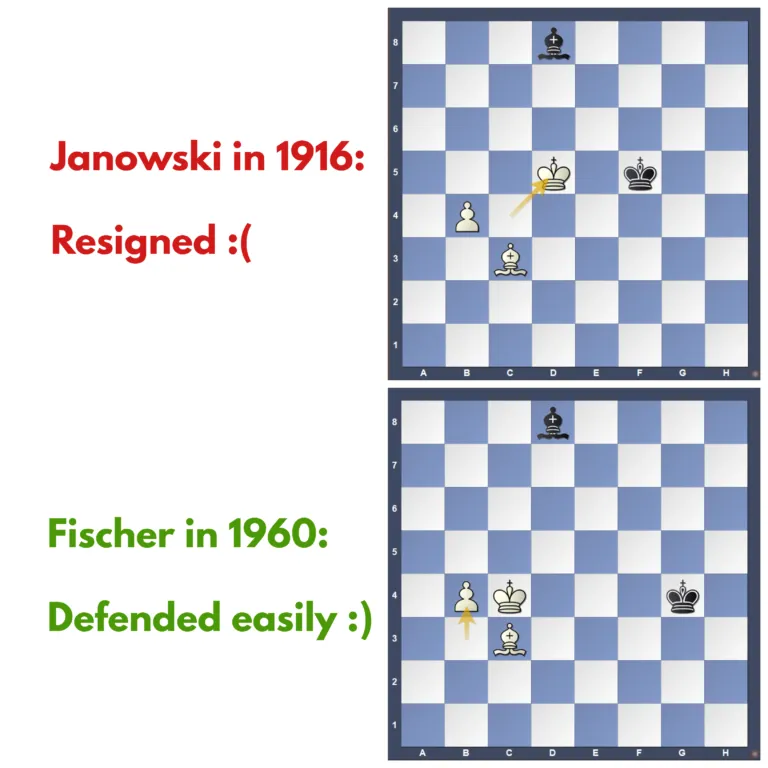10 Reasons Why Club Players Should Study the Classics

Every grandmaster recommends studying the classics, but why? Isn’t it easier to improve by solving puzzles, studying openings, and practicing online? Over-the-board tournaments have had one big advantage over online chess. After the game, you could invite your opponent to analyze the game together. You would go to a special room, sit there and discuss everything that had happened or could have happened during your clash. Some players would enter this room alone and join other players’ analyses.
The most amazing thing is that one of such chess enthusiasts could turn out to be a master or even a grandmaster! They would quickly evaluate the position on the board and give a bunch of variations to prove the point.
The most impressionable person in the room would eventually wonder: “But how do you know all of that?”
The grandmaster would casually reply something like: “This is all well-known. The same endgame happened in the game between Capablanca and Janowski back in 1916. Interesting, that Janowski resigned, although it was a drawish position. Robert Fischer most likely had learned from Janowski’s mistake: in 1960, he reached almost the same endgame against Taimanov. He defended confidently!”
Then the grandmaster would notice how everyone was staring at him and add something like: “Come on! Why don’t you study the classics?”

If you didn’t find this story inspiring, keep reading and find out what are the other benefits of learning the best games of the past. Here are 10 reasons why club players should study the classics!
1. All the World Champions have studied classics
If this wasn’t useful, why would everyone do it?
Isaac Newton once stated: “If I have seen further, it is by standing on the shoulders of Giants.” It works the same way in chess. Grandmasters have seen so many games, that any position can remind them of a similar example. They recognize patterns and know what plans they should implement in the position.
Every world champion has studied the games of their predecessors. In fact, this is what allowed them to overcome the achievements of their forerunners. For example, Kasparov had a lot of trouble playing against Karpov in their first matches. With time, he had learned much from his opponent, improved his play; and eventually managed to beat Karpov.
2. Studying the classics shows you how the best players think
Many best players have annotated their games and shared their thought processes with a wide audience.
Reading such annotations is highly beneficial for any chess learner. This way you can see what the best chess minds paid their attention to in every position and how they solved different problems during their games. Such training can be insightful and will improve your thought process.
3. Studying the classics improves your middlegame understanding
This is one of the major points. Most of the plans were invented a long time ago. By studying the classics, you can find out about them and see how and in what positions different ideas should be implemented.
Moreover, in the later games, you can learn how the other side tried to fight these plans. This way you see the development of chess ideas with time. It is like studying from the simple to the complex and it can make you understand all the nuances of the middlegame play.
4. Studying the classics improves your endgame technique
Everyone can memorize precise endgame positions and learn how to win or draw certain positions. But how do you improve your play in practical endgames? This is what most players struggle with.
Again, one of the best methods is to study from the classics. Analyze the endgame play of Capablanca, Rubinstein, Smyslov, Fischer, Karpov, or some other endgame virtuoso. Do it properly, and you will see your endgame technique getting better in no time.
5. Studying the classics improves your decision-making process
In some positions, it is easy to find a good move, whereas others may require a lot of effort. Usually, you face both kinds of situations during every game. This is why it is important to practice making decisions.
When you go over classical games, try to guess the moves. This way you challenge yourself and learn to make decisions during the game. This method was actively used recommended by the best Soviet chess players. It is much more beneficial than passive studying when you only read a book or listen to a lecture without thinking on your own.
6. Studying the classics increases your opening knowledge
Many people think that the opening stage of the classical games is not relevant nowadays. The engines indeed impacted the theory a lot. But if you want to understand an opening, you should study the classics. Modern top games are extremely complicated.
Both players try to stop each other’s plans and make it nearly impossible for club players to tell what every side is aiming for. The classical games, on the other hand, can illustrate how an opening strategy can result in a certain middlegame advantage and be converted later.
7. Studying the classics shows what level you should be aiming for
How can you learn something if you don’t even know it exists? When studying the classics, you will find out what plans, ideas, and strategic techniques best players use in their games. Moreover, you can notice the consistency and continuity in their play. This all can demonstrate what level you should be aiming for and what chess really is.
Interesting that it also works the other way around. For example, you can not only learn how to exploit your opponent’s lack of development but also realize that you should not get behind in development in the opening yourself. Basically, you can learn from others’ mistakes.
8. Studying the classics can improve your calculation and visualization
When you go over a classical game and see a combination played, take some time and try to calculate the arising variations. Next, you can look at what happened in the game and read the annotations to see how precise your calculation was.
If you missed something important in the variations, try to think about why it happened and what you can do to not miss it next time. This method emulates the playing environment and can help you navigate complications in your future games better.
9. Studying the classics teaches you different styles
Modern top players have stylistic preferences but can play well in any kind of position. They are universal players. To become one, you should work on your understanding of different styles.
If you are an attacking player, you can learn how to play calm chess by studying the games of Capablanca, Karpov, Smyslov, Petrosian, Rubinstein, and many other great positional and strategic players.
If you want to spice up your game, you can study the games of Alekhine, Tal, Bronstein, Kasparov, and many other aggressive and dynamic players. Studying the games will you give the complete picture: what openings they preferred to play, what choices they made, and how they approached different positions.
10. Studying the classics is fun
Did you know that Magnus Carlsen still reads chess books? In one of his recent interviews, he admitted he had been reading about the Soviet Chess Championships.
Of course, it is good if he can find some interesting ideas or plans there. But it is not the main aim. He reads such books because it is interesting. Studying the classics shows how amazingly people could play back then; it lets you dive into the ocean of their fascinating ideas, and also, allows learning some history along the way.
Time to start Studying Classical Games!
https://thechessworld.com/store/product/50-must-know-chess-games-with-gm-gyula-pap/










Comments: